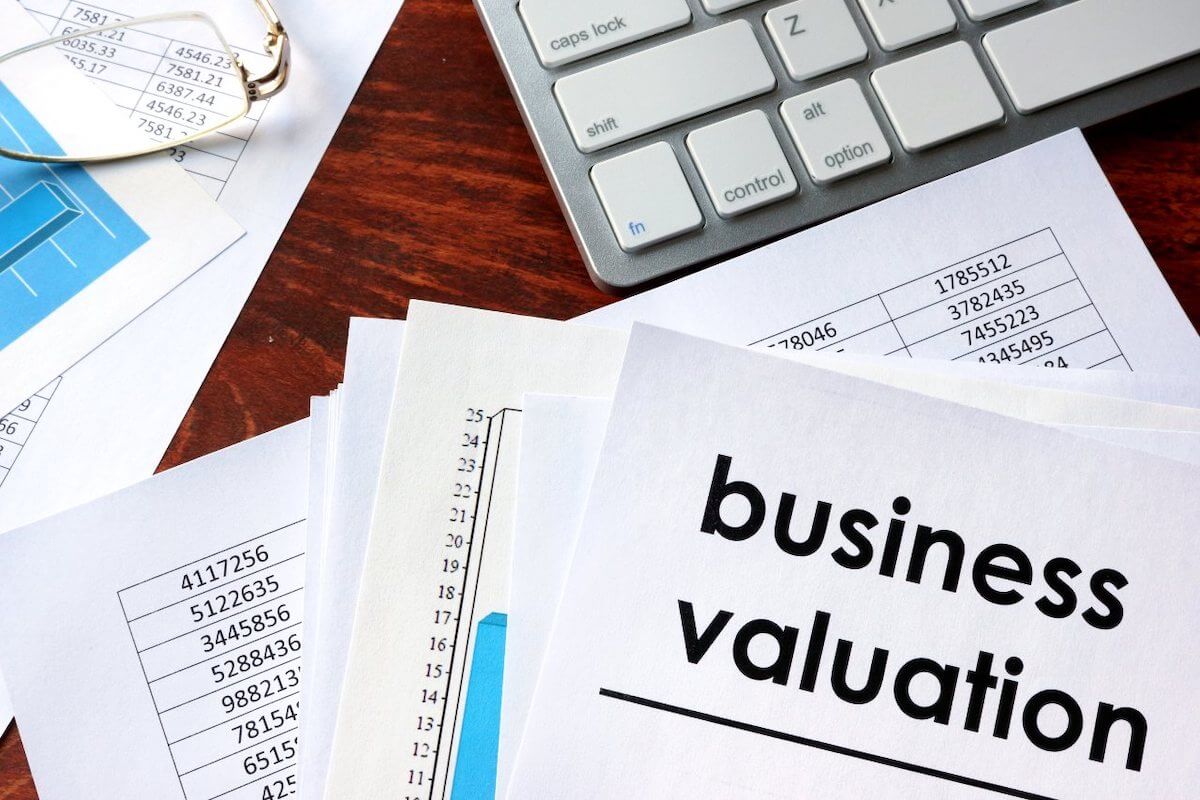As a small business owner, it’s vital to know the market value of your business. Too often, owners aren’t concerned about their company’s market value until they plan to sell and hire a merger and acquisition (M&A) expert to perform a business valuation. This, in turn, can lead to a valuation gap that slows down the sale.
In this article, you’ll learn how the market value of a business is determined, how market value differs from fair market value, and why valuations are a crucial first step when thinking about selling your business.
The Basics of Market Value
In short, the market value of a business is how much it’s worth on the open market. Determining market value for large public companies is easy — all you need to do is multiply the number of outstanding shares by the company’s stock price. For instance, if there are 100,000 outstanding shares that are being traded at a share price of $20 each, the market value would be $2,000,000.
However, calculating market value is a bit more challenging for small to mid-sized businesses. Depending on how you established your business (partnership, LLC, C-corp, etc.), there’s a good chance you may not have any shareholders. Even if you do, your company is not traded publicly, so there’s no way to see how the open market values your business.
Furthermore, determining a business’s value is made more challenging by the fact that certain assets are tougher to evaluate and put a price on. For instance, intangible assets like intellectual property will impact future cash flow, therefore potentially having a significant impact on market valuation.
Measuring asset values, such as real estate or equipment , can be challenging as well. The way a business may recognize depreciation on its balance sheet may not necessarily represent what the total assets are worth on the current market. This is why it’s important to have a M&A advisor evaluate your business and give you an informed opinion of your market price.
Market Value vs. Fair Market Value
When requesting a market valuation, there are two terms that sound similar but are in fact different — market value and fair market value.
Market value is used by business brokers and M&A advisors to determine what an outside buyer is likely to pay for a business. If you’re a business owner who wants a clear idea of the present value of the company in the eyes of a buyer, then a market valuation is right for you.
Fair market value is a term formally used by the Internal Revenue Service (IRS). There is a connotation that a fair market valuation could be part of a certified valuation for an IRS audit or retirement plan, which is much more expensive than a non-certified valuation.
Although a market valuation and fair market valuation may often produce the same or similar results, they are not necessarily the same. There are certain scenarios where a certified valuation is necessary, such as for civil or criminal litigation, but it’s not required if you’re looking to increase the value of your business or preparing to sell.
How the Market Value of a Business Is Determined

Business brokers determine the market value of a business by looking at aggregate data from closed transactions and comparing data from the sales of similar businesses. There is no Multiple Listing Service (MLS), per se, for private companies. However, brokers have a number of other resources that they can use to determine the value of a company.
Experienced business brokers will look at what comparable businesses of similar size and in similar industries have sold for within the past three years. Having said that, there is quite a bit of subjectivity that goes into valuing the business as well.
For example, the business broker/valuation analyst will look at a company’s financial information, such as tax returns and financial statements. Typically, the valuation is determined by multiplying Pre-Tax Earnings by a Multiple. Both of these figures can be tricky to determine.
Earnings can be one of a few financial metrics:
- Adjusted Earnings Before Interest Taxes, Depreciation, and Amortization (EBITDA) — an adjusted EBITDA removes one-time and irregular items
- Unadjusted EBITDA
- Seller’s Discretionary Earnings, which is a measure of future profitability and the cash flow that a buyer – typically an owner/operator – would derive on an annual basis from a sale
Brokers will determine the Multiple by looking at closed transactions and general market research. It goes beyond looking at annual sales. It also considers factors such as liabilities and risks associated with a business. An example of risk is high customer concentration, meaning that a single buyer accounts for 20% or more of revenue. If that customer were to stop buying your goods or services, your revenue would suffer considerably.
As an example, let’s say that your company’s adjusted EBITDA is $1,000,000. You have a high customer concentration, meaning that your business is a bit risky. If a standard Multiple is “4,” your business broker may use a Multiple (or a few different Multiples) that is less than 4. For the sake of the example, let’s say that the broker uses a Multiple of 3.5.
Based on our formula: $1,000,000 x 3.5 = $3,500,000. This, in turn, is a reasonable assumption of the market value of the business.
Why Market Valuations Are Important
Business owners often don’t know the true dollar value of their company. As such, when they plan to sell, the proposed purchase prices from sellers are often considerably lower than what they had anticipated. This “phenomenon” is known as the valuation gap. There is a delta between what business owners think their company is worth and what it’s actually worth on the open market.
Annual market valuations are important because they provide guidelines for business owners. For instance, after a valuation, owners may realize that their company is not worth nearly as much as they had thought. Perhaps they discover there are a few risky aspects to the business, like a high customer concentration, that are bringing down their market value.
Owners can then work to improve the valuation of their business. For instance, they may need to diversify their customer base so that their revenue isn’t dependent on one customer. Or perhaps they need to raise prices and increase gross margins to boost the company’s worth.
Valuations also allow owners to see how their business measures up against other companies in their industry. It provides a better understanding of the competition and where they exist in the market space.
Know the Market Value of Your Business
As a business owner, you may not find yourself concerned with the market value of your company on a day-to-day basis. However, if you do not routinely know the market value of your business, you could be in for a rude awakening when you decide to sell.
Annual market valuations can help prevent this from happening. When performing a valuation, you do not need to know the fair market value, nor do you need to pay for a certified valuation. A basic understanding provided by an expert M&A advisor should provide you with everything you need to know.
Your advisor will likely multiply Earnings times a Multiple to determine your valuation. This may seem like a simple calculation, but it’s one of the reasons why it’s important to have an experienced advisor perform the evaluation.



